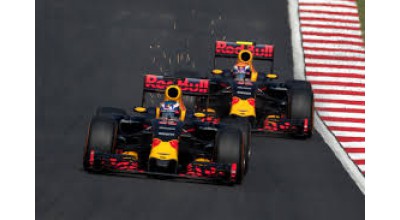Everybody talks about failing fast. Great stuff, but today, we talk about replacing "Fail fast" with something more valuable.
Yes.
Really.
Fast learning.
The idea of "Fail fast" is that many of our ideas will not work, therefore the faster we rip through them, the faster we get to success. Great. But this approach is essentially doing what we do now (only better). Did we ever try to do something we thought would fail? Not so much. We always take the best thinking we have at any given time and try to win with that. That approach is, after all, what we predict will win. Good enough, but...
The downside is that in my industry, the pharmaceutical industry, our ability to predict what will work is more or less100% wrong. We try zillions of things and one or two actually work, and several of them prove useful and valuable in the marketplace. We know that our predictions of winners is of low accuracy. The same is true in start ups (by the way, ever new pharmaceutical is a start up, we just call it something else). We cannot know what the market will want, how the science will work, etc., so we make our best guess and pile in hoping for success, but failing in the main.
Allen Ward calls this "wishful thinking" and the Lean Startup community probably has even less kind words.
But what if we thought about this differently? What, for example, would be different if we set out not to WIN in the market place, but set out to LEARN what the marketplace wanted, then piled into that? This is like cheating at the race track (I used to live near Saratoga, it was a thing). Your chances of picking the winning horse are much, much better if you place your bets at the final pole. You could still fail, but chances are you will be in the money. Fast learning is like that. You spend your up front time figuring out what works, THEN you pile on to the winner, and take home the big money.
This is what the start up community does now. They no longer have "business case" competitions. Those invariably lose. Well, the ex-McKinsey guys win because they know how to put together a slide deck, but they are no better at understanding the marketplace, so their investors lose out, and the guys with the actual winning idea go home and create the Apple 1 in their garage.
Wait...what? That’s right. The start up guys now use fast learning instead. They test the market BEFORE they build the product. Seriously. Go out and show a mock up to a bunch of your intended customers and ask them to buy the beta model. You don't even HAVE a beta model, just a mock up. If your idea stinks, nobody will pony up the $20 or $2000 up front. If it is a great idea, people will pay now, and clamor for it to be released. With a test that costs hardly more than vaporware, these guys figure out what people will pay for, THEN they burn midnight oil until that puppy is on the market and making cash. Learn first, earn fast. Learning is power.
This is a lot like the transformation of the oil and gas industry. It used to be that oil companies would drill willy-nilly all over the place until they struck oil, then they would ramp up drilling right around that first gusher. All of those dry wells were pretty expensive. And then somebody got an idea. Let's only drill where we know there will be oil! It turns out, geologists could not predict ALL places that had oil, but they could pick SOME places that were absolutely certain to have oil. The new approach immediately improved created a low cost-high yield approach to drilling. Learning is power.
In a whole other arena, John R. Boyd, a military strategist, noted that it is far easier to win when attacking undefended areas. Crazy, right? It turns out that if you send out scouts to find where the enemy is, and where the enemy is not, you can attack where they are not. When you do that, you can very quickly surround your enemy. This has proven to win so fast you cannot handle the rate of enemy surrendering. As an added bonus to everyone, this approach radically reduces destruction and casualties of war. Learning is power.
Dr. Terry Barnhart is Head of Process and Cultural Excellence at Sandoz Inc. He is a board member of the LPPDE, too.

